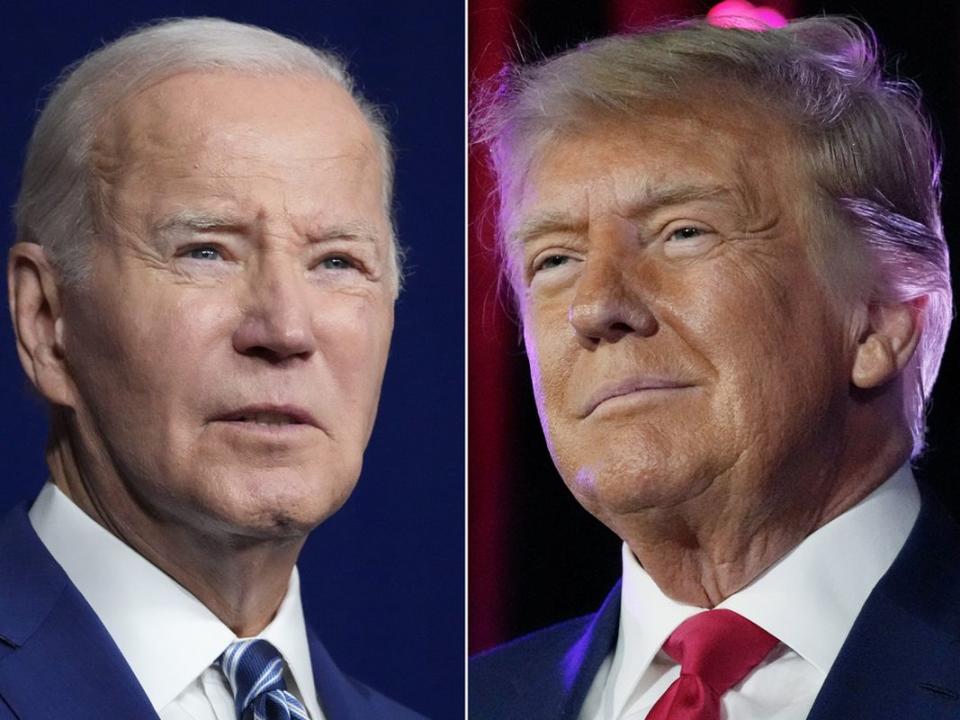William Watson: Warts and all, democracy is still best (even if it's Trump vs. Biden)

Ain’t democracy grand? Fewer than one in 100 Americans live in the state of Iowa. Donald Trump got 56,260 votes in its Republican caucuses, which means one in roughly 43 Iowans over the age of 18 came out to vote for him. Granted, it was a freezing cold night (because of global warming, you understand).
One in 43 out of one in 100: the long division hurts the mind. But it was more than twice the vote Trump’s nearest opponent got so on the basis of such a slim sliver of American voters, most U.S. media were willing to grant him the Republican nomination for president for 2024. And his nearest opponent, Florida Gov. Ron DeSantis, agreed and dropped out of the race, though former South Carolina governor Nikki Haley argued it would be best to hear from voters in New Hampshire, where one in 240 Americans live.
With Trump as the presumptive Republican nominee, the battle for democracy begins in earnest in the U.S., with the Democrats pitching saving democracy from Trump as the over-riding theme of this year’s election. It’s true that Trump’s behaviour following the 2020 election, including firing up the crowd that briefly took over Congress on Jan. 6, 2021, was shameful, anti-democratic and generally despicable. But he will be president again only if he gets the most votes in November — or at least, given the eccentricities of the Electoral College, the most votes in Michigan (home to one in 33 Americans), Pennsylvania (one in 26) and Arizona (one in 45), three of the six states widely considered to be this year’s swing states.
(Perhaps the one advantage of this system of strategic geographic concentration is that the rest of the country isn’t bothered with election ads. In Montreal, this weekend’s football games were repeatedly pelted by Trump broadsides at Haley, and vice versa, in anticipation of today’s New Hampshire primary. They will now cease entirely and be replaced by the usual ads for beer, betting and Ozempic.)
On this business of saving democracy, it would be very good for American democracy if its self-appointed guardians in the Democratic Party and precincts left of that committed to accepting a Trump victory should he, in spite of everything, persuade voters to re-elect him. That would be subject, of course, to the Democrats losing whatever legal challenges they will have every right to bring, and are probably already preparing, concerning whether voting irregularities should cancel the result. That the guardians themselves have been pushing innovations, such as vote-harvesting and no-ID voting, that make irregularities more likely is ironic but does not remove their right to sue.
It would also be good if Trump agreed to recognize a Democratic victory, if that is what happens. In reality, however — i.e., in his unreality — Trump believes the only elections that are legitimate are the ones he wins. So that won’t happen. But it is only January. Voters will be well aware of his obstinacy in this regard. He will be asked about it many times between now and November. If they vote for him anyway, well, that’s democracy, too.
Hillary Clinton was impolitic to use the term but since 2016 U.S. elections have been very much about “the deplorables,” pitting people on her side who consider MAGA-types deplorable against MAGA-types and others fed up with being patronized and happy to have found a champion, however unlikely, in Trump.
This election, though, looks like being about “the indispensables.” Trump has always considered himself indispensable: he told the convention that nominated him in 2016 that only he can fix America’s problems. (The U.S. economy did do well under Trump, but only because, in Wall Street Journal columnist Peggy Noonan’s phrase, he got “rolled by a Republican Congress” and introduced a battery of tax and regulatory cuts of the sort Nikki Haley is being lambasted for wishing to extend.)
Now Joe Biden and Kamala Harris are arguing they are indispensable: only their re-election will save American democracy — and Biden probably isn’t so sure about Harris, depending how low her polls go and whether he figures his might go up if he dumps her.
It must be an awful responsibility, feeling yourself indispensable. But so many people do. Vladimir Putin, Russia’s leader for 25 years now, clearly believes he is. Xi Jinping, China’s president for life, does, too: President Xi Thought has now been officially interwoven into China’s constitution. “Madison, Franklin and me, Xi,” the president must think: “constitution-writers all.” Iran’s mullahs clearly also feel that “après nous, le deluge,” as Louis XV (or his friend Madame de Pompadour) put it.
“What’s wrong with us?” Russians, Chinese, Iranians and citizens of the world’s many other despotisms must wonder. “Why can’t we govern ourselves, the way Canadians, Americans and people in the world’s other democracies do? Why can’t we, not even after decades of the same person in charge, peacefully decide someone else should lead us?”
Ain’t democracy grand, I started with. Actually, democracy is grand. Even as we focus on its foibles, we need to protect it at home, including from its self-appointed defenders. And to sympathize with and encourage those who don’t have it abroad.
Bookmark our website and support our journalism: Don’t miss the business news you need to know — add financialpost.com to your bookmarks and sign up for our newsletters here.
